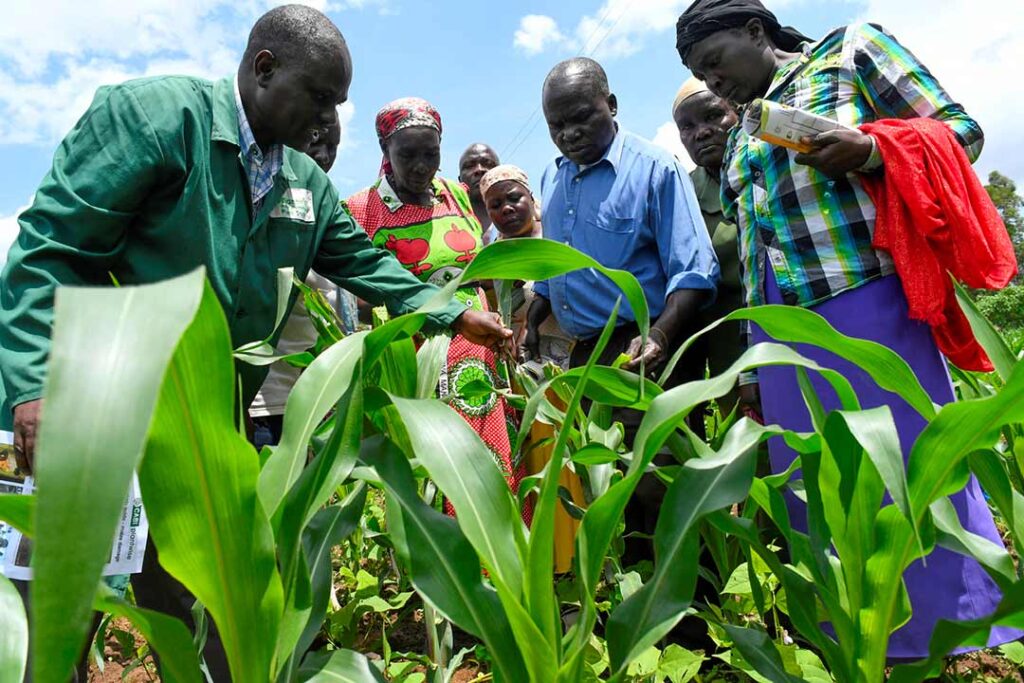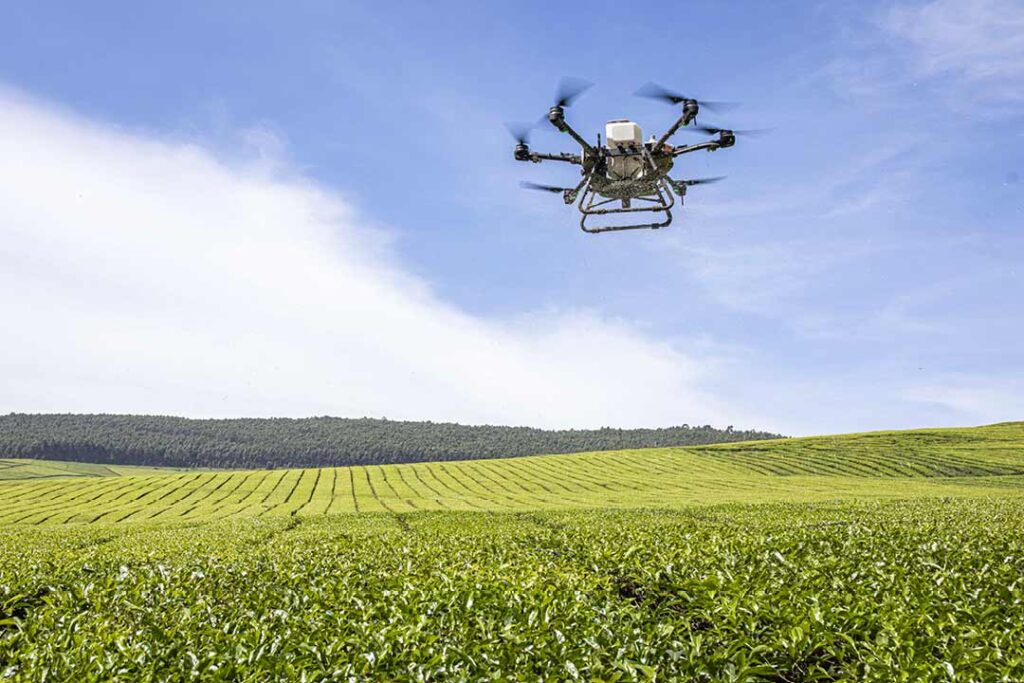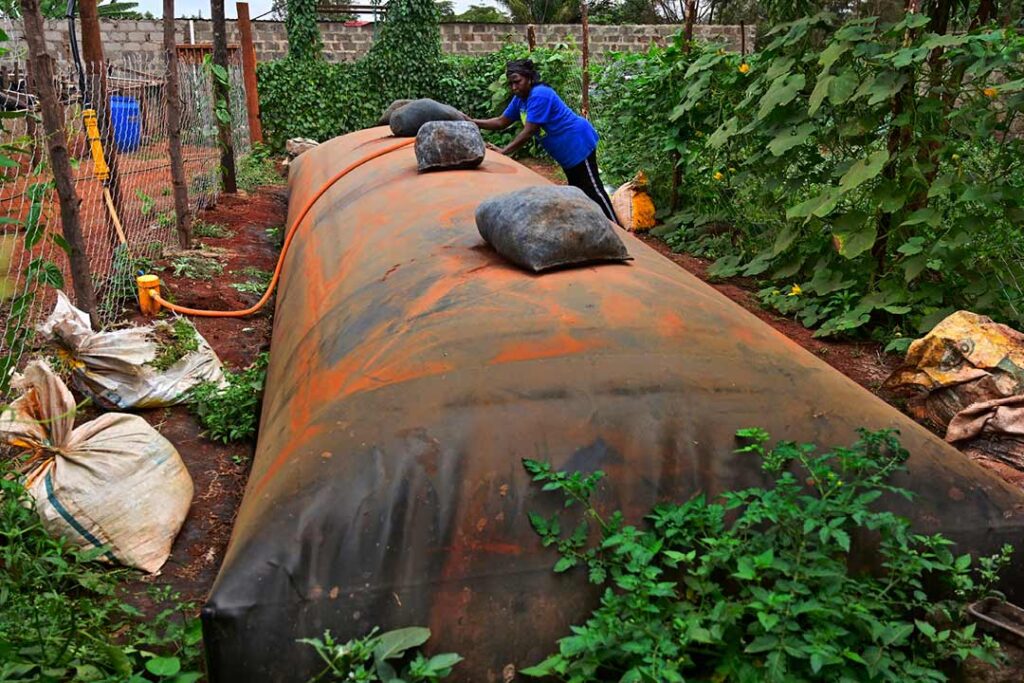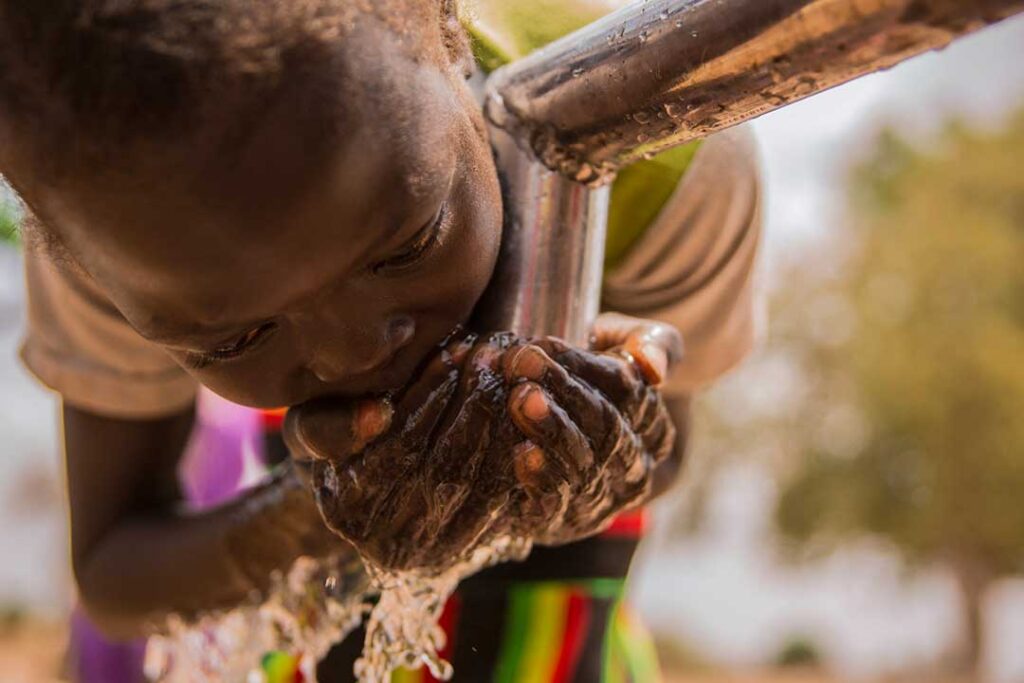Africa is facing unprecedented food insecurity, with more than 134 million people in 29 out of 54 countries on the continent facing acute shortages, according to the US Department of State Humanitarian Information Unit.
Countries facing acute food insecurity in Africa include Angola, Benin, Burkina Faso, Cameroon, Central African Republic, Chad, Cote d’Ivoire, Democratic Republic of Congo, Eswatini, Ethiopia, Ghana, Guinea, Kenya, Lesotho, Madagascar, Malawi, Mali, Mauritania, Mozambique, Namibia, Niger, Nigeria, Senegal, Somalia, South Sudan, Sudan, Tanzania, Zambia, and Zimbabwe.
Current rising levels of food insecurity are attributed to several factors, including extreme weather, human displacement, conflict, and economic shocks. Strategic and urgent measures are needed to enhance the resilience of Africa’s food systems and bolster their ability to deliver food security.

Recently, Norad, a Norwegian agency for development cooperation, sent out a call for proposals on combating food insecurity in sub-Saharan Africa, listing some interventions they believed to be key in overcoming food insecurity, including climate-resilient agriculture, biodiversity, and support for small-scale food producers. Other proposed interventions include reducing food loss and waste, developing effective local value chains, and providing access to markets for small-scale farmers.
Speaking at the Mo Ibrahim Governance Weekend held in Kenya in April, Ibrahim Mayaki, African Union Special Envoy for Food Systems, emphasised the need for more investment in food systems to reduce food insecurity. “Food insecurity is not a question of production, but of poverty. The main aim should be to tackle poverty,” said Mayaki.
Indeed, investment in agriculture is crucial in addressing food insecurity and features prominently in the African Union 2003 Maputo Declaration on Agriculture and Food Security, which required countries to allocate at least 10% of national budgetary resources to agriculture and rural development. However, Mayaki lamented that only 10 to 12 countries on the continent had managed to reach that target.
The third Biennial Review Report, published by the AU in February 2022, on the progress in implementing the Comprehensive Africa Agriculture Development Programme (CAADP) through the Malabo Declaration, revealed that only one country, Rwanda, was on track to achieve the goals of the seven Malabo Declaration commitments: re-committing to the principles and values of the CAADP process; enhancing investment finance in agriculture; ending hunger in Africa by 2025; reducing poverty by half by 2025 through inclusive agricultural growth and transformation; boosting intra-African trade in agricultural commodities and services; enhancing resilience of livelihoods and production systems to climate variability and other related risks; and strengthening mutual accountability for actions and results.
But in addition to investments to prevent food crises, countries, regional institutions, and individuals are addressing food insecurity and boosting the resilience of food systems in diverse ways.
For example, in West Africa, the World Bank has rolled out a $570 million multi-phased programme to increase agricultural productivity through climate-smart agriculture, promote intra-regional value chains and trade, and build regional capacity to manage agricultural risk. The project was deemed necessary to address the urgent need for food assistance due to a combination of drought, poverty, high cereal prices, environmental degradation, displacement, poor trade integration and conflict.

In Kenya, meanwhile, the government has prioritised sustainable farming practices in its policies and budget to boost food and nutrition security and build resilience against climate change shocks.
Kenya’s Principal Secretary, Ministry of Agriculture and Livestock Development, Kello Harsama, in a recent statement that climate-smart agriculture was key to food security.
“Various state agencies, in collaboration with partners from county governments, local and international firms, and research institutions, are building the capacity of both smallholder and large-scale farmers to practise sustainable agriculture towards improving crop yields, stimulating the economy, and helping mitigate climate change,” he said.
“Agriculture is hugely vulnerable to climate change, particularly in Kenya, where farmers bear the brunt of irregular, insufficient and unpredictable rainfall patterns,” he added. “Climate Smart Agriculture (CSA) is the solution to erratic weather patterns, as it involves actions that sustainably increase productivity, enhance adaptation, reduce greenhouse emissions to a possible zero, and enhance the achievement of national food security and development goals.”
With a quarter of sub-Saharan Africa’s economy driven by agriculture, and more than 60% of the population made up of smallholder farms, technological innovation must be key to producing enough food to meet the needs of a burgeoning population.
Brian Bosire, a qualified engineer, is the founder and CEO of UjuziKilimo in Kenya, an enterprise he founded four years ago to empower smallholder farmers to use technology in making decisions on their farms, access financial support, and obtain the knowledge they need to improve the productivity of their farms.
In particular, UjuziKilimo processes millions of data points each day to create a complete soil and agronomic data pool that is both field-specific and highly accurate, ensuring farmers move away from relying on guesswork to make decisions on which crop will do well. For UjuziKilimo, whose stated mission is to “enable data-driven decisions for the world’s smallholder farmers by collecting and making sense of agricultural data” it’s about seeing smallholder farmers get a return on their products. The data that is collected from the soil is what Bosire uses to ensure these farmers have assistance such as insurance and financing.
In South Africa, Karidas Tshintsholo has co-founded Khula, a company that has created an app that helps small-scale farmers connect with markets and transport and sell their produce, with the aim of creating support systems across Africa.

It is also worth noting that agriculture is the largest water user in Africa and that inadequate water resources impede better agricultural development and food security. The World Resource Institute estimates that one in three African citizens is impacted by water scarcity, and 400 million people in sub-Saharan Africa lack access to basic drinking water.
According to the recent Global Water Security Assessment report, 13 African countries are critically water insecure. These include Chad, Comoros, Djibouti, Eritrea, Ethiopia, Liberia, Libya, Madagascar, Niger, Sierra Leone, Somalia, South Sudan, and Sudan.
Africa’s pervasive water scarcity problem means the sector urgently needs more investment, although, according to the African Development Bank, countries on the continent invest an average of 0.5% of their gross domestic product in the water sector.
Still, countries are making efforts to address the water problem. Eswatini, for example, is forging partnerships, and supporting innovation, policies and initiatives that promote sustainable water management practices. Recently, three rural communities in Eswatini benefited from $220,000 in water infrastructure built under an IBSA (India, Brazil and South Africa)-funded water, sanitation and hygiene (WASH) project. Implementation of the project was made possible through the combined efforts of IBSA countries, WaterAid, the National Development Management Agency (NDMA) and the United Nations Development Programme (UNDP).
Similarly, Kenya plans to raise $7 billion through a public-private partnership (PPS) programme, the Kenya National Water and Sanitation Investment and Financing Plan (NAWASIP), to enhance water security for irrigation, domestic and industrial use, as well as hydropower generation, which will see the construction of 100 dams across the country.
This programme is not without controversy, however, as critics have claimed this amounts to the privatisation of Kenya’s water resources, a position that Water and Sanitation Cabinet Secretary Alice Wahome denies.
“Water resources belong to the people of Kenya,” she said when she appeared before Kenya’s Parliamentary Committee on Blue Economy, Water and Irrigation to explain why the state was opting for public-private funded water projects. “What we are doing is allowing private investors with financial, technical and operational expertise to invest in the sector in a substantial way that ensures we meet the country’s water needs and ensures that investors are able to recoup their investments.”
Water access impacts food security, and more must be done to improve this. Water is a key driver of economic and social development; water-related challenges undermine progress in all major areas of concern, from health to hunger, gender equality to jobs, education to industry, and disasters to peace. That is why African countries must commit and take action to achieve Sustainable Development Goal (SDG) 6 as part of the 2030 Agenda, which promises that everyone will have access to safely managed water and sanitation by 2030.

Raphael Obonyo is a public policy analyst. He’s served as a consultant with the UN Department of Economic and Social Affairs (UNDESA). An alumnus of Duke University, he has authored and co-authored numerous books, including Conversations about the Youth in Kenya (2015). He is a TEDx fellow and has won various awards.



